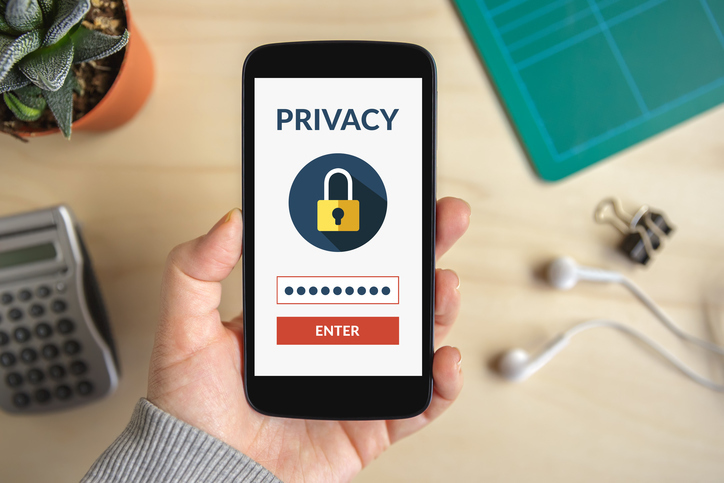by Lynette T. Owens
Online privacy has been a hotly debated topic for a while now, and it has intensified as greater numbers of people from multiple generations are finally adopting new devices and applications.
When you start researching the issue, it can leave you feeling frustrated and confused about how anyone is going to solve anything. As a parent, I feel I need to pay attention to the various positions and solutions that governments, companies, privacy hawks, and individuals put forward, but also to boil it down so I know what to tell my kids.
There are several reasons tackling online privacy is so difficult. First, privacy is a subjective matter. Spend 1 minute on Facebook or Twitter and you can see that some people are more comfortable sharing more about their lives than others, even within a trusted circle of family and friends. To take a broad brush and attempt to define privacy in a few words is difficult, and without a common definition, it is harder to set universal rules around it.
Second, most people understand and love that many of the services they use online are free. The only way that this is possible is because of advertisers, who pay to promote their wares on the sites you use in the hope that you will buy their stuff. Most people accept this reality. In a study by the Pew Center, 81% of people using online news sites said they don’t mind advertising because it allows the content to be free. If the flow of information from you to the site to the advertiser stopped, then the money supporting the sites would stop and there would likely be fewer free online services available to the masses.
Third, new technology keeps coming. And some of these products and services do not consider privacy issues in the design process, and will forego it in favor of some other benefit (see my post earlier this month on the Xbox Kinect and the data it collects on you). How can anyone keep up with all of it, AND be expected to guide their kids accordingly?
All of this does not diminish the need for parents, teachers, and kids to be aware of the consequences of sharing personal information online, and to act accordingly. It doesn’t excuse companies from protecting the personal information they do collect from customers. It doesn’t dismiss the need for serious debate or laws about how to enforce that protection or punish its absence or abuse. It does, however, give me a headache, and worries me as a parent about how best to guide my kids.
So I opted instead to see the glass half full. If I could have anything I wanted for International Privacy Day, here is my wish list:
- That Internet safety, media literacy, and digital citizenship education was integrated into school curriculum and taught as soon as they were online. This would include discussions and critical thinking skills about online privacy — what personal information they should or shouldn’t share and why, what their rights are to privacy (online or otherwise), why and how they should respect the privacy of others, and how the Internet makes privacy issues different than in other contexts.
- That my kids and I could click a button and find an easy to read checklist of the personal information every online service, website, mobile app, game, etc. we use is collecting about us (over and above anything we type in such as surfing habits, time spent on anything, the sound of our voices, etc.) and why they need it – before I start using it. I don’t count 6,000 word privacy polices as an answer. But what a great tool that would be for me to talk to my kids about privacy, right there in context, when they are so eager to download a new app or sign up for a free gaming service.
- That we could refuse that use of personal information if we wanted. Or alternatively be rewarded somehow if we allowed it. The Computer Electronics Association supports this type of “information currency” business model, and I think there is some merit to exploring it. As a parent, however, I would want to be sure that with a tool like item #2, my kids would still learn to think critically about the boundaries of their privacy. Just because they may get a chance to see Justin Bieber doesn’t mean they should give out our home address.
- That people wouldn’t post pictures or share personal stories of my kids for the public to see without asking me first. (No technology can solve this one – this is just a matter of online etiquette). Dear Emily Post Foundation, we could really use a guide from you on this!
- That two or more of these wish list items would become a reality by next International Data Privacy Day.
There’s nothing wrong with dreaming. And even if all of this became a reality, we will always need to take responsibility for maintaining and respecting privacy and that of others, and to teach our kids the same.
For more Internet safety tips and advice, go to www.trendmicro.com/internetsafety
Lynette Owens is Vice President of Consumer Education & Marketing at Trend Micro and Founder of the company's signature Internet Safety for Kids and Families program. With 30+ years in the tech industry, Lynette oversees global initiatives to help deliver the technology tools and education that people of all ages need to keep themselves and their families safe online. She serves on the advisory boards of the Identity Theft Resource Center's Alliance for Identity Resilience, the Global Anti-Scam Alliance, and INHOPE.
